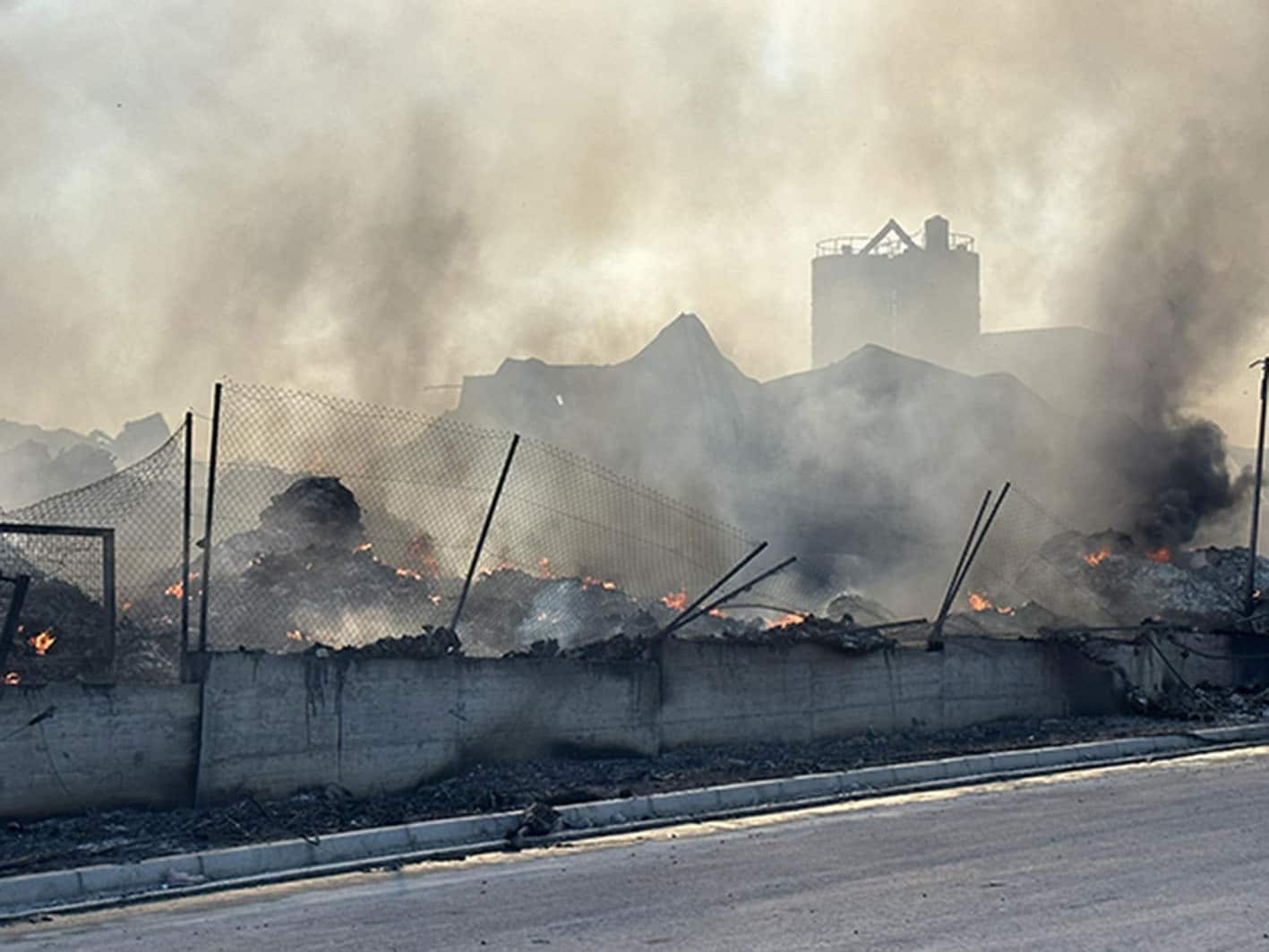The Greens said on Tuesday that the state is obliged to relocate heavy industry away from residential areas, but others argue that the issue has been exacerbated by people building houses closer and closer to industrial sites.
The Greens’ statement was made following an announcement by authorities on Monday afternoon that air quality had returned to normal in Geri, after the incineration of a recycling facility in the area.
Noting that the area’s air quality would be affected for days, the party said that the location of heavy industrial installations, including for recycling, storage of large volumes of flammable materials, and asphalt production near residential areas not only must stop but that it is incumbent on the state to conduct land-use planning and find more suitable sites.
“We call on the government to heed the exhortations of the country’s scientific bodies […] who warn that the operation of concrete production units in areas adjacent to communities poses serious risks to human health,” the Greens said.
This was backed up by numerous experts, including the medical, heart, paediatric, oncology, perinatal, speech pathologists and research chemists’ associations, said the Greens.
But Geri mayor Neophytos Papalazarou told the Cyprus Mail that the issue had been complicated by residential areas creeping closer and closer to the heavy industries.
Asked about the Greens’ statement, Papalazarou said the issue stems from decisions made decades ago but which have since caught up with longstanding trends.
“The industrial zone in the area has existed for decades, it’s the residential areas that have approached the industries.
“So, there were fields that got divided up and rezoned and developments were built – the state should have monitored this more closely,” he told the Cyprus Mail.
But the mayor explained that there were important financial reasons that led people to build close to the factories, which were understandable.
“Of course, we’re not against residential developments because each person has a need for housing – particularly younger couples – and they are looking for more affordable areas.
“They’re looking at affordable places to set up their household – so it’s not their fault either, so what we’re calling on from the government is not to bring any more industries which would disturb the area,” he said.
Papalazarou argues that the state should have done more to set red lines and prevent residential zoning from approaching the heavy industries in the area.
“But the main point is that the state should establish a zone from which housing would not approach any closer to the factories – this didn’t happen, so people were buying cheaper plots and the residential areas got closer and closer to the factories,” he said.
Indeed, the reality on the ground has changed over time.
In their statement, their Greens also emphasised that people’s health and the protection of the environment were above financial interests.
“We demand from the government to proceed with a strategic planning of zoning areas for the installation of heavy-duty units in a way that effectively ensures the protection of public health and the environment,” they added.
The party also called for more detailed and regular safety monitoring of these industries.
“The [alarm] has rung once again and the state must do [its duty] to protect citizens and their health, the environment and property,” the Greens concluded.
For his part, Papalazarou added that the relocation of the asphalt plant – “as was promised” – was a priority.
“The other point, however, was that the environment department must carry out more tactical inspections and checks at such sites, this must occur more frequently,” the mayor said.
He said, however, that inspections were “recently carried out” at the facility which burned down on Sunday.
“Of course, there’s also the issue that the owners of the factories must do more to protect their properties,” Papalazarou concluded.







Click here to change your cookie preferences